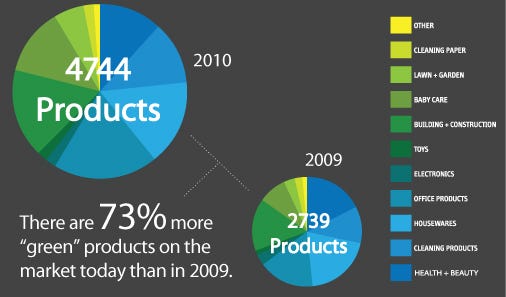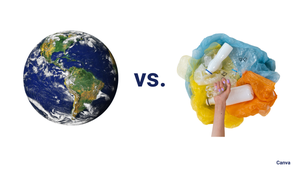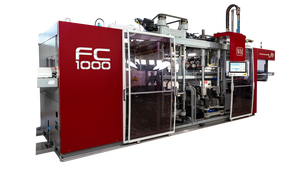Scott McDougall, president and CEO, TerraChoice says his company "struck a nerve" with its first sins of greenwashing survey, which sought to document and define the numerous sustainability claims all manner of products and packaging were making in their bid to lure eco-conscious consumers. The survey was enough of a success, that TerraChoice has made it an annual event, with the most recent version looking at the year that was in greenwashing for 2010.
June 24, 2011
Scott McDougall, president and CEO, TerraChoice says his company "struck a nerve" with its first sins of greenwashing survey, which sought to document and define the numerous sustainability claims all manner of products and packaging were making in their bid to lure eco-conscious consumers. The survey was enough of a success, that TerraChoice has made it an annual event, with the most recent version looking at the year that was in greenwashing for 2010. McDougall reviewed his findings in an address to Walmart's Sustainable Packaging conference, held June 22 in conjunction with Pack-Ex Toronto (June 21-23; Toronto Congress Centre).
In its most recent 2010 report, TerraChoice examined 5296 products that made "green" claims, pulling the items from 19 stores in Canada, and 15 in the U.S. Of those products, 2583 were in Canada, 1960 were from the U.S., and 753 were in both. His company applied standards from ISO, the U.S. Federal Trade Commission, and the Canadian Competition Bureau to judge the packaging claims. Originally TerraChoice identified 6 sins of greenwashing, but they've since added a seventh:
Sins of Greenwashing survey results
Hidden Trade Off: Ex. Product has recycled content, but it's sourced in an impactful manner.
No Proof: Claims that your either can't or haven't given evidence for.
Vagueness: Ex. "All Natural", many things are naturally occurring (arsenic is the example McDougall used), but that doesn't make them green.
Irrelevance: A claim that all competitors could make, cites aerosol cans that say "No CFCs", which were legally banned decades ago.
Lesser of Two Evils: Ex. "fuel-efficient SUV" or "organic tobacco".
Fibbing: "Since it's Canada I'll use fibbing not lying."
Worshiping False Labels: "Legitimate third-party endorsement, not asking your art department to make up a seal."
TerraChoice found that there were 73% more "green" products on the market in 2010 compared to 2009, rising from 2739 to 4744. From 2008 to 2009, the number jumped 78%. More than 95% of consumer products committed at least one sin, but that's actually down from the previous two years, which saw rates of 99% and 98%.
By sin, the most common was "no proof", followed by "vagueness", a tie between "false labels" and "hidden tradeoffs", with "irrelevance" and "fibbing", following up the rear. In terms of proper labeling, there are 24 standards and programs that are recognized as legitimate, with the most credibility granted to ISO 14024. As an example of a non-proper label, McDougall showed a seal he purchased online from a stock-image seller for $15. A green-hued circle, it read "green" in the middle, with "certified environmentally conscious" encircling the border.
Green has become the descriptor du jour for many supplies of material and machinery within the plastics industry; can you think of any companies that are guilty of greenwashing?
About the Author(s)
You May Also Like


